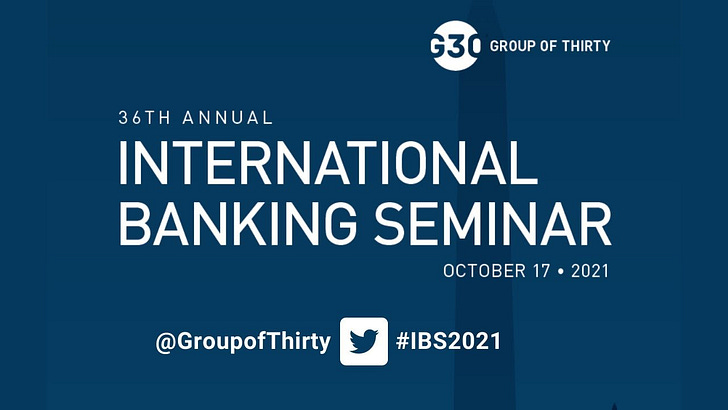First:
How was it that really-existing socialist China was able to successfully “step away from the plan”, while really-existing socialist Russia was not? It remains a deep, deep historical mystery—to me at least:
Adam Tooze: How China Avoided Soviet-Style Collapse: ‘Russia… is the superpower that China already eclipsed. On the Eurasian landmass, this is a reversal of historic proportions. In 1914, the GDP per capita of the Tsarist Empire was approximately three times China’s; by the 1970s, it was six…. China has [now] nearly caught up with Russian GDP per capita…. Isabella Weber‘s new book, “How China Avoided Shock Therapy,” changes the terms of the debate. Weber’s question is not so much how China benefited from opening up, but how it succeeded in avoiding the disaster that integration into the world economy was to become for the Soviet bloc…. Reform-minded Zhao Ziyang… was torn between two contending factions… the free market, “package reform group” led by figures like younger, Western-orientated economists like Wu Jinglian…. On the other side… a group whose careers had been marked in the 1960s and 1970s by the Cultural Revolution, and whose vision for a more gradual and pragmatic process of price reform grew out of prolonged exposure to the Chinese countryside…. The more pragmatic reformers favored a dual-track system, in which a certain portion of output was delivered to state agencies at fixed prices, while another portion was reserved for sale at market prices. This would enable a gradual process of price discovery…. As Weber tells it, China walked a tight rope in the 1980s. Twice the package reformers came close to persuading reform-minded Zhao to introduce full-blown price reform. Twice they were defeated…. This sets up a painfully ironic denouement. If it was the pragmatic advocates of a dual-price system who won the argument in 1988, why did they not come to occupy the limelight in the subsequent years of triumphant growth? Why is it that the radical package reformers like Wu Jinglian, who were defeated in 1988, are today celebrated as the godfathers of reform?… The package reformers proved radical in theory but pragmatic in political praxis. After Zhao abandoned them during the inflation crisis in 1988, the package reformers had few qualms in 1989 about denouncing both him and the student protestors. Their loyalty to the powers that be was rewarded. Once the dust had settled, it was the package reformers who, under Jiang Zemin and Zhu Rongji, came dramatically to the fore. Zhou Xiaochuan, one of the most brilliant exponents of package reform in the late 1980s, would serve as governor of the People’s Bank of China from 2002 to 2018…. The wider question—why China and the Soviet Union’s paths diverged…. Chris Miller in “The Struggle to Save the Soviet Economy.”… The deep preoccupation that Soviet leaders and experts had with China’s experience…. They simply could not make Chinese-style reform work in the Soviet Union. What Gorbachev ran up against were not intellectual limits, but a densely interwoven web of political and economic interests… rooted in the historic legacy of the transformation of Soviet society under Stalin…. The entrenched interest of Soviet collectivized agriculture: a massive and powerful block of state industrial companies that did not want to see their interlocking relationships jeopardized. And, above all, he faced the military-industrial complex…. The question we have to answer is: Why could Deng shepherd a process of incremental institutional and macroeconomic adjustment, whereas Gorbachev faced an impasse?…
LINK: <https://www.noemamag.com/how-china-avoided-soviet-style-collapse/>
One Video:
Group of Thirty: G30 36th Annual International Banking Seminar: ‘The Group of Thirty was pleased to host its premiere annual event, the International Banking Seminar, on Sunday, October 17 from 9:00am–11:30am US EDT… <https://www.youtube.com/watch?v=VJ5nHZqmAt4>
Very Briefly Noted:
Maximilien Robespierre (1794): On Virtue & Terror: ‘The basis of popular government in time of revolution is both virtue and terror. Terror without virtue is murderous, virtue without terror is powerless… <https://alphahistory.com/frenchrevolution/robespierre-virtue-terror-1794/>
Adam Serwer: ’There seems to be a bit of confusion out there about certain things so I’m gonna to do a quick thread. These are my maternal grandparents… <https://twitter. com/AdamSerwer/status/935197566102327297>
Mary Papenfuss: Ex-Newsmax Host Who Attacked ‘Lying Freak’ Dr. Fauci Over ‘Scamdemic’ Has Died Of COVID: ‘Get vaccinated, Dick Farrel told friends before he died… <https://www.huffingtonpost.co.uk/entry/dick-farrel-newsmax-right-wing-scamdemic-dies-of-covid_n_610f50d3e4b041dfbaaabac6>
Paragraphs:
Kevin M. Kruse: ’Same guy, ten days apart. Goddammit, this one might have broken me. “Look, it’s common for normal people to spend $18k/month on their mortgages and have a live-in nanny who makes $192k/year. That’s just how it is.” “The poors didn’t come out to do all this backbreaking labor at $14/hour? Weird”…
LINK: <https://twitter.com/KevinMKruse/status/1448412370137665537>
Yeon-Koo Che & Olivier Tercieux: Optimal Queue Design: ’We study the optimal design of a queueing system when agents’ arrival and servicing are governed by a general Markov process. The designer chooses entry and exit rules for agents, their service priority—or queueing discipline—as well as their information, while ensuring they have incentives to follow recommendations to join the queue and, importantly, to stay in the queue. Under a mild condition, at the optimal mechanism, agents are induced to enter up to a certain queue length and no agents are to exit the queue; agents are served according to a first-come-first-served (FCFS) rule; and they are given no information throughout the process beyond the recommendations they receive from the designer. FCFS is also necessary for optimality in a rich domain. We identify a novel role for queueing disciplines in regulating agents’ beliefs, and their dynamic incentives, thus uncovering a hitherto unrecognized virtue of FCFS in this regard…
Andrei Frumusanu: The Apple A15 SoC Performance Review: Faster & More Efficient: ‘Today’s investigation into the new A15 is just scratching the tip of the iceberg of what Apple has to offer in the new generation iPhone 13 series devices. As we’re still working on the full device review, we got a good glimpse of what the new silicon is able to achieve, and what to expect from the new devices in terms of performance. On the CPU side of things… the new A15 improvements…. We’re elated to see that it was… an efficiency focus this year, with the new performance cores showcasing adequate performance improvements, while at the same time reducing power consumption, as well as significantly improving energy efficiency. The efficiency cores of the A15 have also seen massive gains, this time around with Apple mostly investing them back into performance, with the new cores showcasing +23–28% absolute performance improvements, something that isn’t easily identified by popular benchmarking. This large performance increase further helps the SoC improve energy efficiency, and our initial battery life figures of the new 13 series showcase that the chip has a very large part into the vastly longer longevity of the new devices…
LINK: <https://www.anandtech.com/show/16983/the-apple-a15-soc-performance-review-faster-more-efficient/4>
Rick Perlstein (2005): ’I Didn’t Like Nixon Until Watergate’: The Conservative Movement Now: ’I was part of the panel “Barry Goldwater and the Modern Conservative Movement,” alongside Lee Edwards and M. Stanton Evans…. [I said: “A] thread one finds throughout the annals of the Nixon presidency… that what they were doing was moral, the eggs that need be broken in the act of redeeming a crumbling West…. ”Just remember you’re doing the right thing,“ the president told Bob Haldeman on Easter Sunday, 1973. ”That’s what I used to think when I killed some innocent children in Hanoi.“ Then he briefed him on how to suborn perjury from an aide concerning the blackmailing of the Watergate burglars…. My subjects from the youth conservative movement of the 1960s, the ones that later came to inherit the world, present[ed] themselves… on the one hand, beaming, telling me stories of principle. On the other, sometimes in the same breath, winkingly defining political deviancy down, telling Hustonian tales of antinomial subterfuge. Peeling off opposition bumper stickers with razor blades, jamming Rockefeller phone banks, working to subvert the 1961 National Student Association convention by setting up a dummy ”Middle of the Road Caucus.“… My thesis [is] that the Republicans are less the party of Goldwater, and more the party of Watergate…. Nixon knew that if you had a dirty job to get down, you got people who answered to the description….” Postscript: The response to my address was, understandably, defensive. My co-panelist Stan Evans retorted that my invocation of Richard Nixon was inappropriate because Nixon had never been a genuine conservative. He added: “I didn’t like Nixon until Watergate.” I responded: “Thanks for making my point”…
LINK: <https://www.huffpost.com/entry/i-didnt-like-nixon-until-_b_11735>
Ariel Rubinstein (2013): 10 Q&A: Experienced Advice for “Lost” Graduate Students in Economics: ‘These informal comments are those of Ariel Rubinstein delivered at a Wine and Cheese party at NYU, October 28, 2011, and were expanded on by the author at the invitation of the editors (revised January 2013). Readers who find Rubinstein’s comments interesting are encouraged to go to his Web site, <http://arielrubinstein.tau.ac.il>, and to look at his new book, Economic Fables, which raises a number of issues directly related to teaching…
LINK: <https://arielrubinstein.tau.ac.il/papers/10QA.pdf>
Julian Sanchez: ’Recently binged a few debates on the historicity of the Gospels between New Testament scholar Bart Ehrman & various apologists, and kept thinking how much less plausible so many key apologist arguments sound in the age of QAnon…. A lot of apologetics on this front boil down to the idea that it’s wildly implausible that people would spread unfounded stories or sheer fabrications with such speed and conviction, often at substantial personal cost. And yet… The parallels are… eerie. A messianic figure (whose early followers often wonder “Who are you?”) prophecies a major sociopolitical upheaval that will overthrow the corrupt powers that be and institute a new kingdom. The prophecy fails, but (many of) the followers are undeterred. The apparent falsification of the predicted revolution is reinterpreted as part of a larger plan, and the betrayal of the prophet as a necessary step in leading the mass public to a greater spiritual truth. Believers begin circulating personal accounts of miraculous occurences consistent with the narrative. (Ivermectin healed me! I received a vision of PCAPs proving election fraud! I saw the fake ballots being hauled in on a truck!) Some of these are straight grifts. Many are earnest misunderstandings of real experiences. These are exaggerated and stripped of ambiguity in repeated retelling, coming to be treated as indisputable facts that “everybody knows,” at least within the community…. Political authorities, initially disdainful of the new movement, begin to view it as a force to be harnessed and convert (or purport to), accelerating the spread and lending the movement’s narratives credibility with a wider audience…
LINK: <https://twitter.com/normative/status/1449021626889261056>






At the end of the Sino-Japanese War/the Long March/the Revolution, the PRC holds the entire mainland but it does it without any cohesive program of industrialization.
At the end of the Great Patriotic War, the USSR economy is fully mobilized and, critically, there is no civil economy to demobilize into. It wasn't there before, it isn't there now. There's no systemic alternative to the mechanisms of central command and singular objectives.
That's it. Military spending is a net negative to the overall economy, but the mobilization spending prioritization and control model is net _destructive_. (To a large extent, the US mammonism outbreak with the Reagan presidency was an initially cynical effort to mask the consequences of Vietnam and the unaccountable Cold War nuclear build up/build out on the overall economy so no one would start asking the rich to pay for it.)
The PRC has avoided this. You can put it down to the Korean War -- which destroyed so much of the core PLAN cadre in obviously tech-dependent ways that "army as a tool of policy" wasn't even considered for half a century -- or basic good sense or anything you like, really, but that's the core policy difference. China was in a position to create a civil economy; the USSR was not.